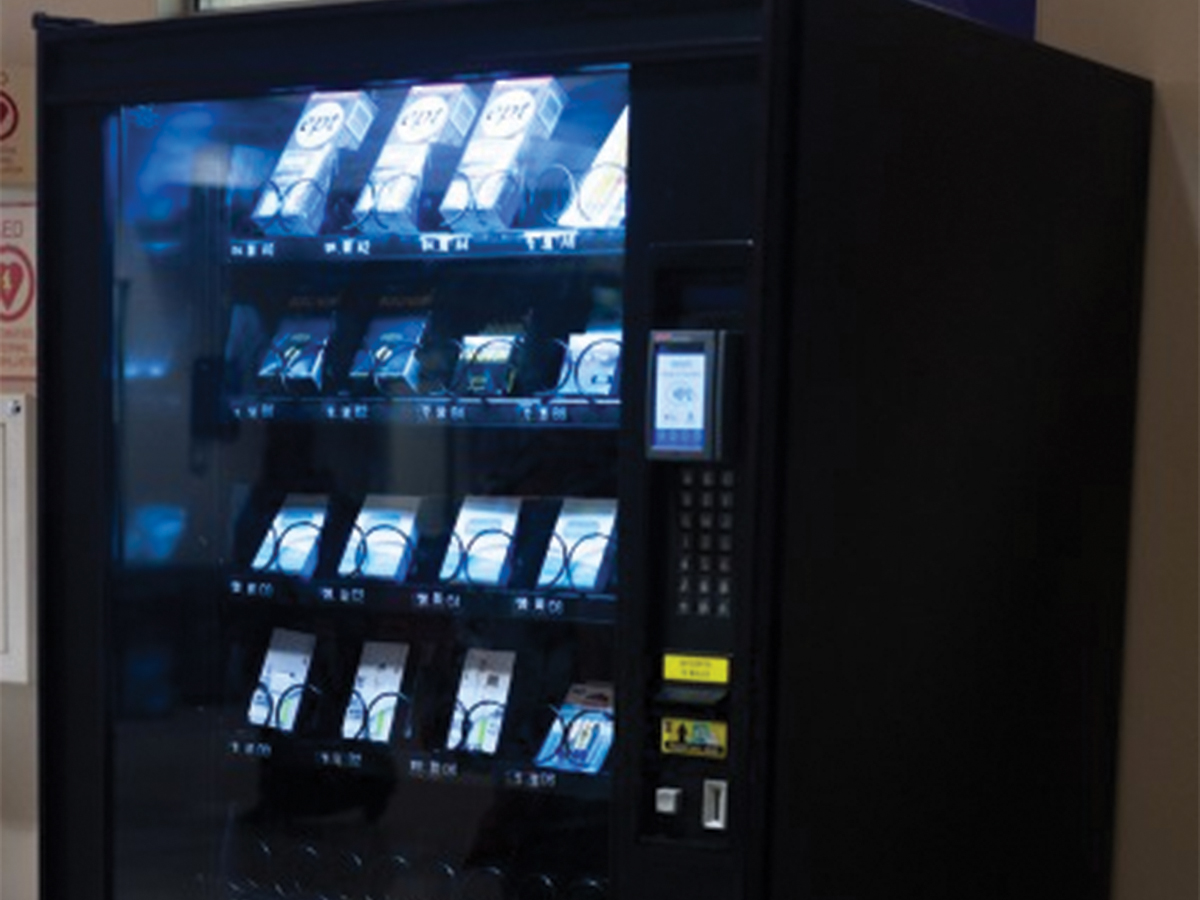Starting in mid-October, fliers around UCR’s campus were put up by Planned Parenthood Generation Action (PPGA), asking students to scan a QR code that prompts them to take a survey. The survey asks students for their thoughts on PPGA’s current campaign to make a safe sex vending machine available on campus which would provide several safe sex items: plan B pills, condoms, tampons, pads, urinary tract infection pain relief medication, yeast infection pain relief medication, midol and more. PPGA has teamed with The Well and Student Health Services at UCR to launch this project.
PPGA is a national organization of students who organize events on their school campuses and in their communities to mobilize efforts for reproductive rights, raise awareness about reproductive health rights and educate students about sexual health. According to the survey, PPGA believes that a safe sex vending machine is necessary on college campuses because it will give students access to reproductive health and wellness items that they otherwise not have access to.
By making this machine available, PPGA hopes that it can eliminate the challenges in purchasing such products. They believe that by having these machines on campus, students can purchase a wide range of items throughout the day and night without having to worry about store hours and transportation.
PPGA also hopes that safe sex vending machines being available on campus will reduce the stigma, embarrassment or fear that students face while they are purchasing these items at a convenience store or clinic. PPGA intends to fill these vending machines with a variety of products as well as placing the machine in a discrete and private area in order to avoid the possible stigma of using the machine. They also believe that this vending machine will help reduce unwanted pregnancies on campus and in turn promote safe sex. According to the survey, PPGA hopes to provide these items at a discounted price.
According to Elizabeth Kavianian, a third-year public policy major who is spearheading the campaign at UCR, most of the products would be at retail value. Their most significant focus, however, is getting Plan B for $20, which is what UCLA and UC Berkeley have implemented in their machine. Kavianian stated that compared to $40 to 50 off campus, having Plan B for $20 would significantly increase usage among students and in turn promote safe sex.
PPGA wishes to place a safe sex vending machine on campus because, according to Kavianian, the “abstinence-only” approach, which she believes has been making a prominent comeback, is proving ineffective; she believes that a safe sex vending machine is vital to encouraging safe sex.
She stated that “switching back the ideology of “sexual risk avoidance” would seriously hinder students’ knowledge of reproductive healthcare, especially the younger population. Without comprehensive education and safe access to preventative items, pregnancies and STI rates would surge,” Kavianian explained. “More specifically, college students are at high risk because they face multiple barriers to receive care, like transportation, affordability, and fear of protest or conflict.” This project, according to Kavianian, “would enable students to have easy access to materials at an affordable, stigma-free rate.”
After speaking with staff and conducting their survey, the top results for the location of the vending machine are Rivera Library, the HUB, the SRC and the dormitories. Kavianian believes that “it’s essential to have this machine in a spot that’s accessible to all students, so we are working on finding the best place out of those.”
To complete the survey, scan the QR code on a phone’s camera roll in order to get redirected to the survey.








